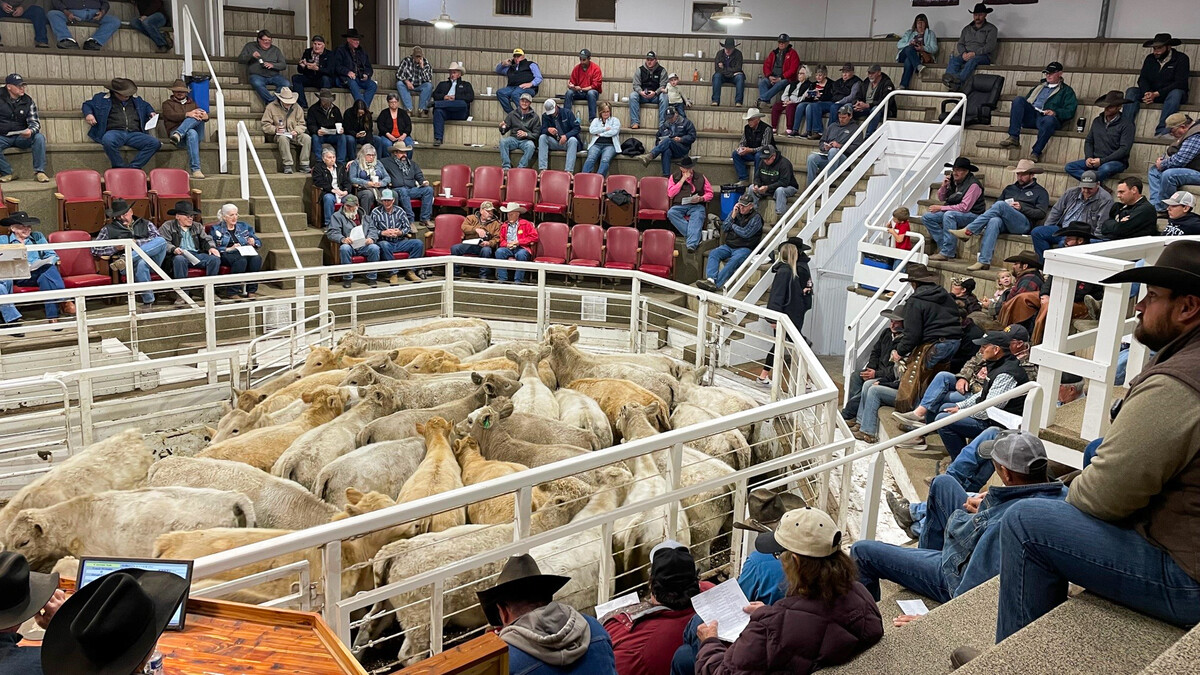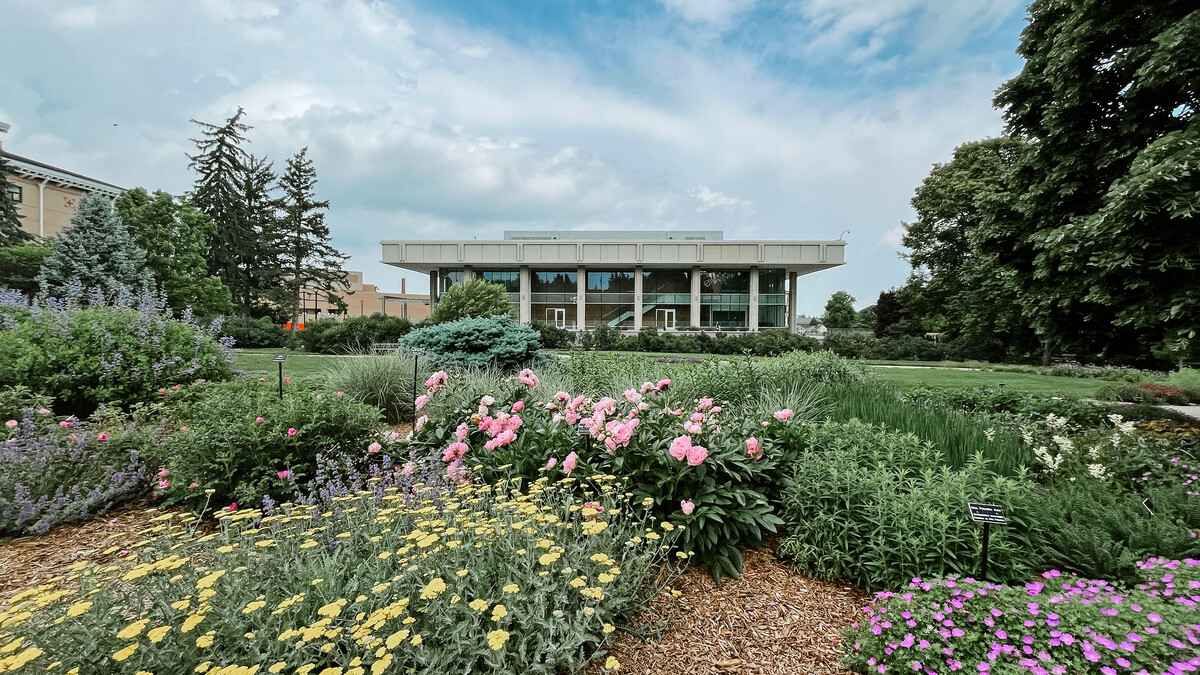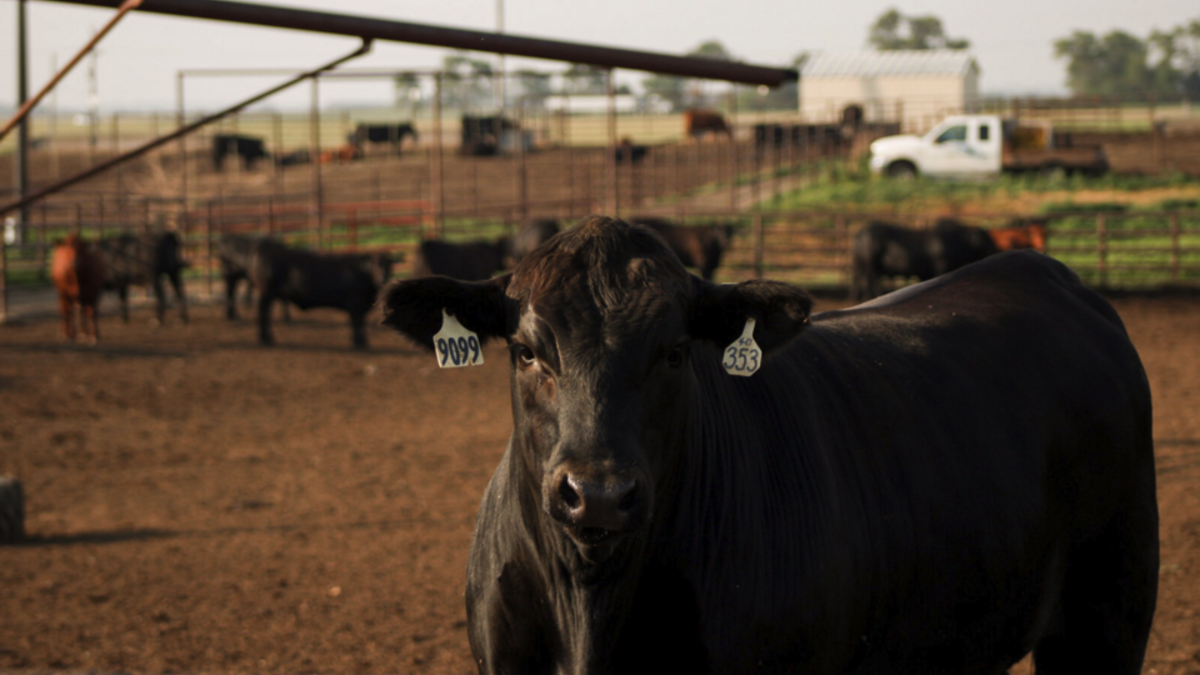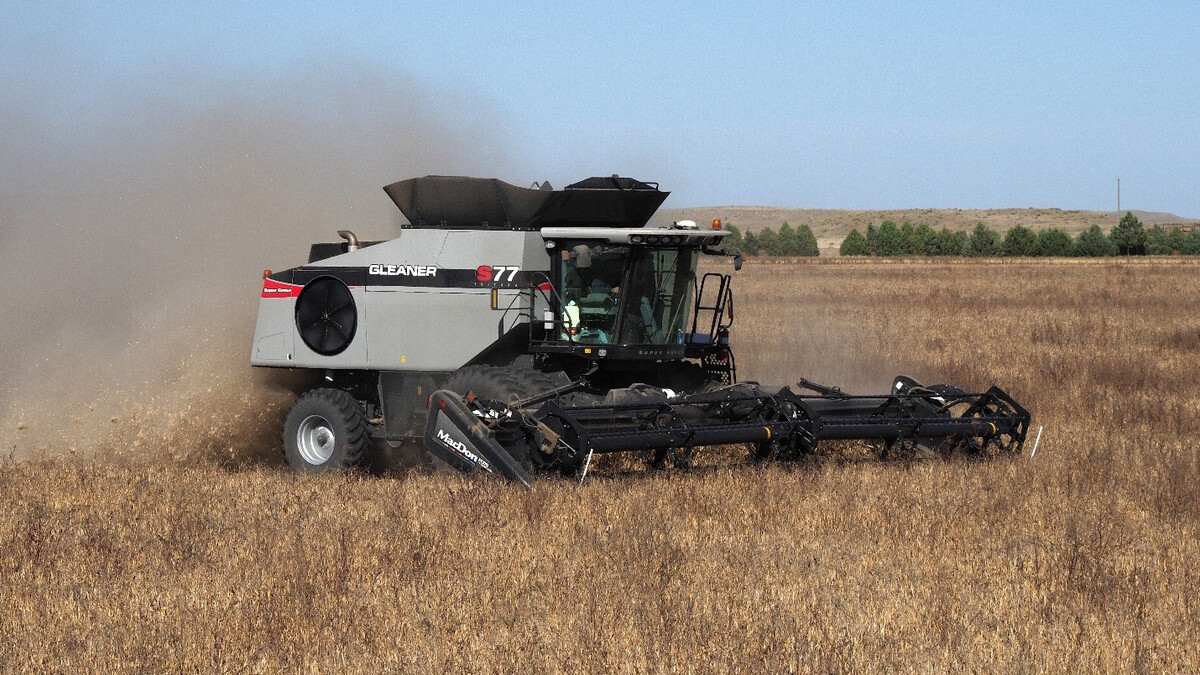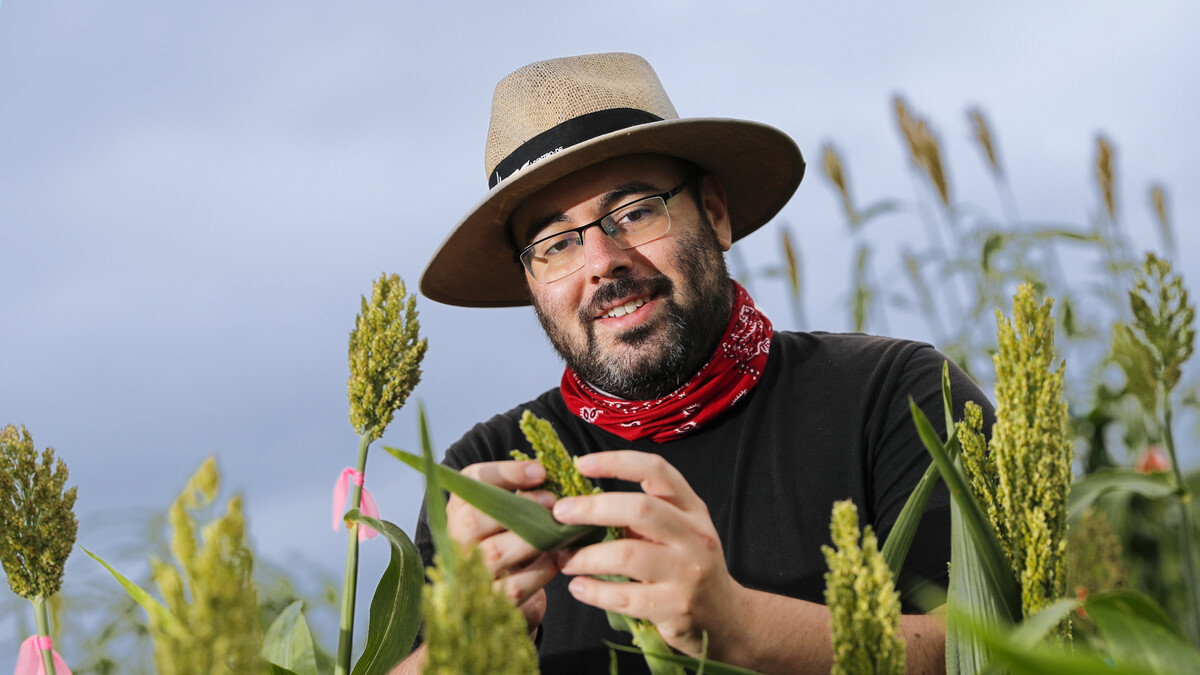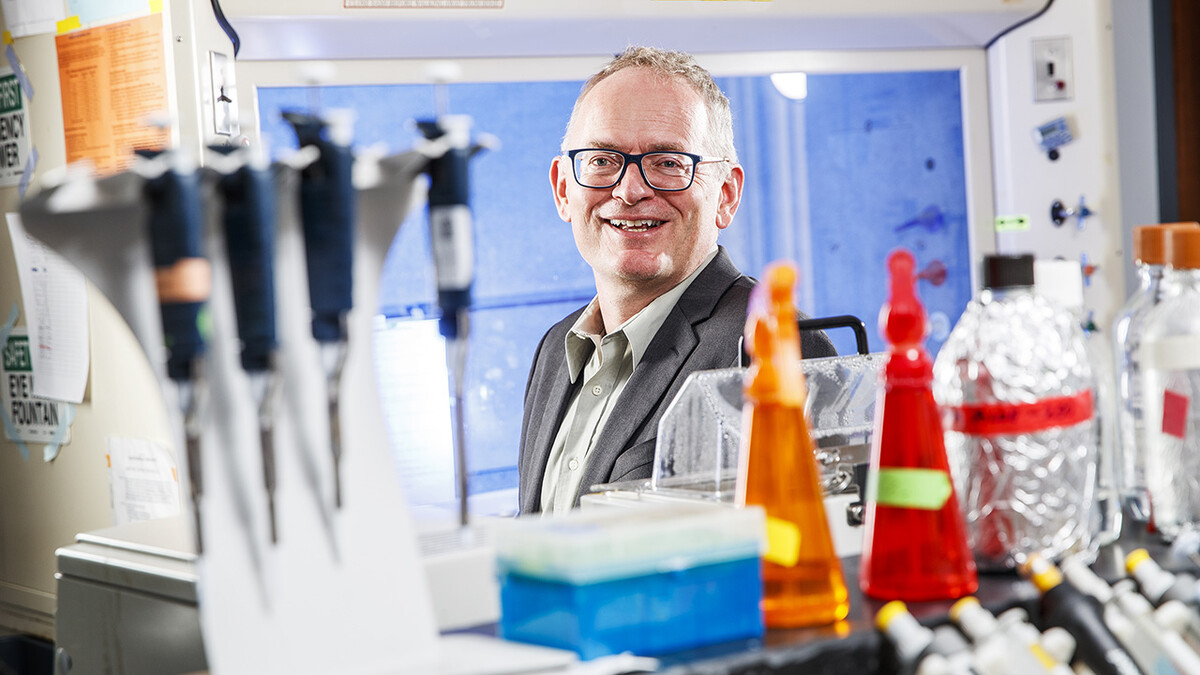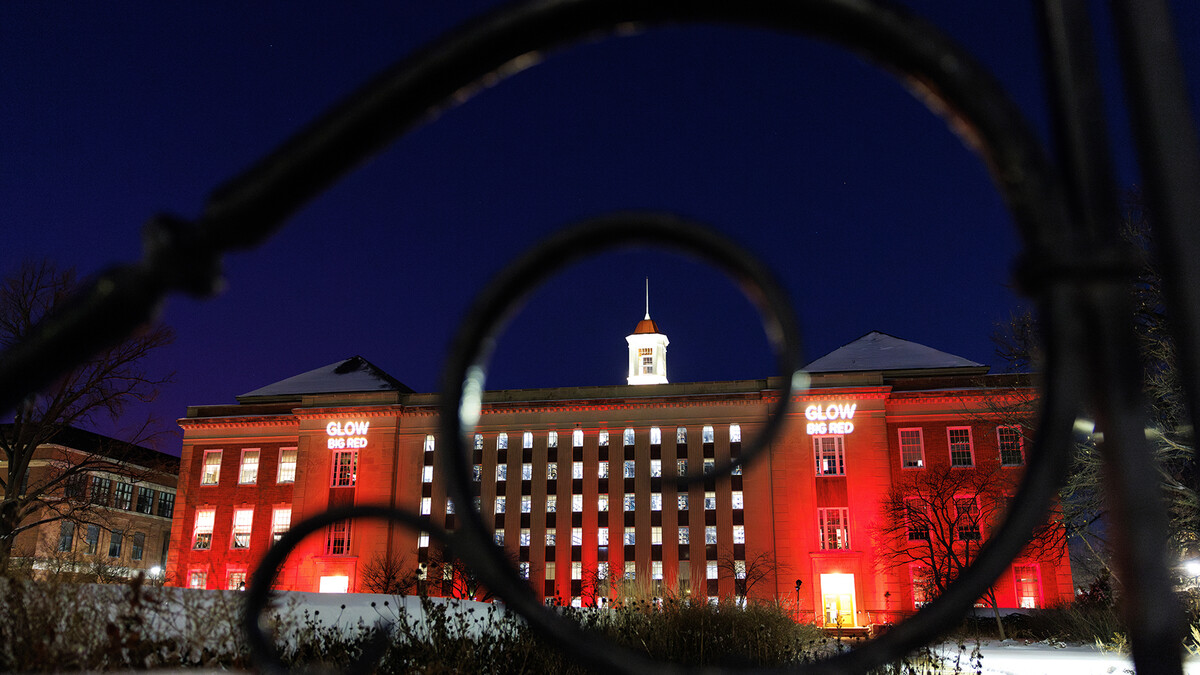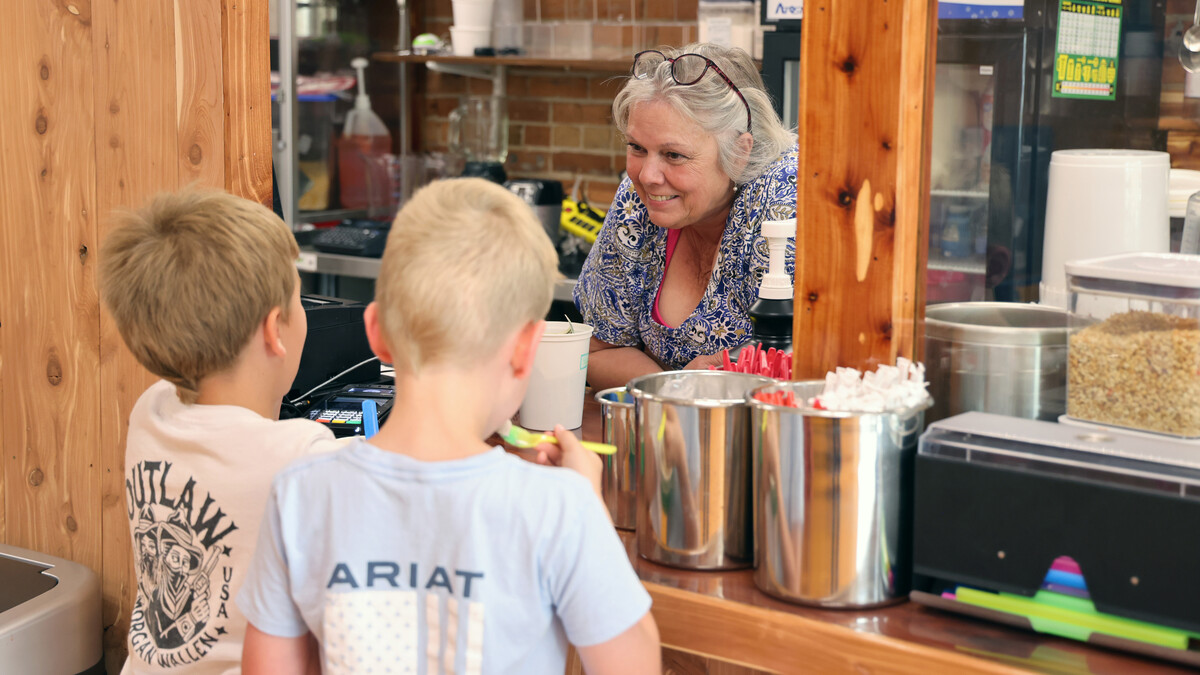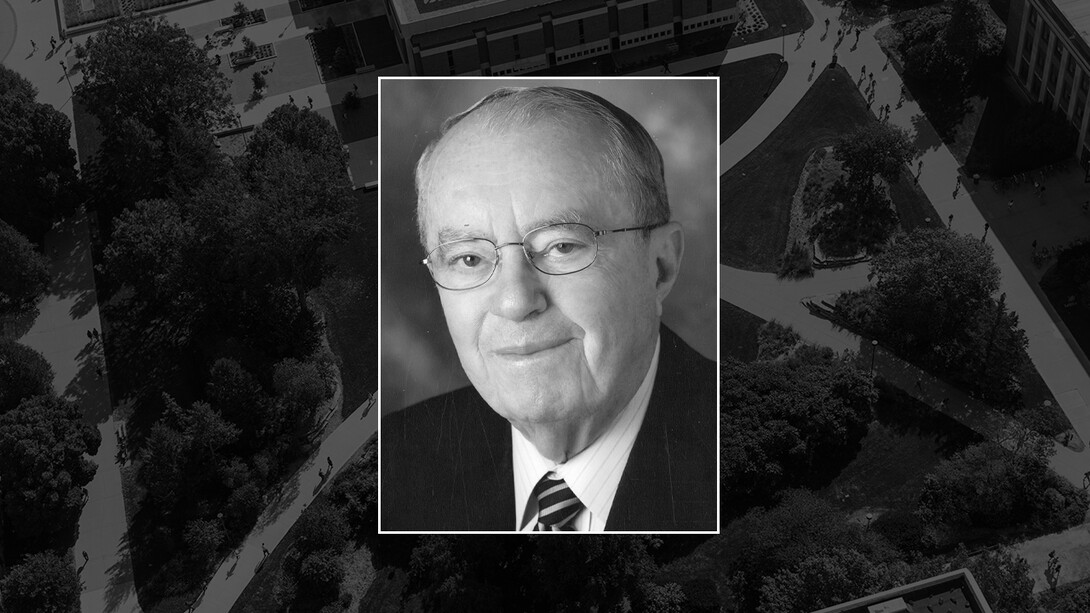
B. Keith Heuermann, a leader in Nebraska agriculture and major supporter of the University of Nebraska–Lincoln, died March 29 at age 99.
The philanthropic support for the Institute of Agriculture and Natural Resources from Heuermann and his wife, Norma, included endowments for the Heuermann Lecture series, focusing on sustainability regarding food, natural resources, renewable energy and rural communities, as well as for a professorship, the Heuermann Chair of Agronomy, focusing on advanced crop science.
"Keith Heuermann was an innovator in agriculture, a bold entrepreneur and a generous supporter of the University of Nebraska–Lincoln," said Chancellor Rodney D. Bennett. "He will be greatly missed, and his legacy will impact generations to come."
Heuermann, born on April 19, 1925, in Phillips, Nebraska, was an entrepreneurial pioneer in development of hybrid seed corn. Prairie Valley Hybrids, founded by Heuermann and his brother and father, developed some of the earliest known single cross hybrids, starting in the late 1950s.
After Prairie Valley Hybrids was sold in 1979, Heuermann turned to developing hybrid seed popcorn. His company BKH Popcorn achieved notable sales, especially for its microwave popcorn through an 11-year collaboration with the QVC TV channel.
Keith Heuermann was an innovator in agriculture, a bold entrepreneur and a generous supporter of the University of Nebraska–Lincoln. He will be greatly missed, and his legacy will impact generations to come.
“Keith Heuermann embodied the spirit of Nebraska — an innovative thinker, a bold entrepreneur, an ardent supporter of agriculture and natural resources, and an amazing friend,” said Mike Boehm, Harlan Vice Chancellor for IANR and NU vice president for agriculture and natural resources. “His life spanned — and he frankly contributed to — a century of incredible change and progress in the agriculture industry, and he continued to seek out new ideas and perspectives throughout his lifetime.
“Without a doubt, the university is a better place because of Keith and Norma’s generosity. So many of their gifts support innovation and, in the case of the Heuermann Lecture series, present an opportunity for learners to remain curious. Keith’s legacy truly will be felt for generations to come.”
Heuermann’s interest in seed corn innovation took root in 1942 when he was a freshman at the University of Nebraska and helped with harvesting yield trials for the university’s corn breeding research. After Heuermann asked Thomas H. Goodding, an agronomy faculty member, about opportunities for raising seed corn privately, Heuermann purchased his foundation seed with $12 sent by his father.
“And that’s the way we got started in the hybrid seed corn business,” Heuermann said in a recorded interview at the Heuermann Lecture website.
Heuermann’s philanthropic support for the University of Nebraska–Lincoln included a range of additional efforts, including:
- Leadership gift to the Nebraska College of Technical Agriculture’s Student Success and Activities fundraising effort currently underway.
- Annual support of the Center for Plant Science Innovation Fund, helping graduate students.
- Leadership gift to the East Campus Student Learning Commons, now known as the Dinsdale Family Learning Commons.
- Annual support of the Nebraska LEAD Program.
- Leadership gift to Nebraska Innovation Campus to help with development of plant phenotyping equipment.
His civic involvement ranged widely at the local and state levels, including as a trustee for the University of Nebraska Foundation and leader with the Nebraska Seedsman Association and Nebraska Seed Advisory Committee.
“Keith Heuermann felt a responsibility to give back to the University of Nebraska, recognizing how profoundly it impacted his life’s work,” said Brian F. Hastings, president and CEO of the University of Nebraska Foundation. “I’m grateful for the 35 years Keith served as a University of Nebraska Foundation Trustee. He understood the importance of the university's agriculture research to producers and the state’s economy and philanthropically supported this important work. Though Keith spent his entire life in Hamilton County, the impact of his professional and philanthropic contributions can be found across Nebraska and beyond.”
For his contributions in agriculture, business and philanthropy, he was honored with awards including the Nebraska Crop Improvement Association’s Premier Seed Grower (1968) and Distinguished Service Award (1993), UNL College of Business Entrepreneur of the Year (1998), Nebraska State Chamber of Commerce Hall of Fame (1999), Nebraska Hall of Agricultural Achievement (2000), and NEBRASKAland Foundation Award (2016).
A committed Cornhusker fan, he attended almost every home football game for more than 50 years. In his early years, he enjoyed racing motorcycles and later pursued aviation, owning and flying his own plane.
The Heuermann Lecture series began in 2011. Topics over the years have included agricultural and natural resources research and education; global food security; biotechnology; energy diversification; rural development; agricultural technology; and international trade.
Heuermann said he appreciated how the lecture series encompassed such a range of issues important for the future. “All those things fit together very well,” he said.
The next Heuermann Lecture, “Nourishing a Healthy Future: The Role of Irrigation in a Changing World,” is scheduled for April 29.
Harkamal Walia, an expert in plant breeding and genetics, is the current Heuermann Chair of Agronomy.
Heuermann died in Grand Island a few weeks before his 100th birthday.
In his recorded interview at the Heuermann Lecture website, he described his memories of the Depression era, when immense clouds of dust swept north into Nebraska from the southern Plains. Tumble weeds blew against fence lines, the dust accumulated in heavy snow-like drifts, and the fences leaned forward under the pressure, he recalled.
In looking back over his lifetime in agriculture, he said, “I never saw a year in crop production that sometime during that year there wasn't something trying to take that crop away from you. It was either climate, insects, storms or something trying to get part of that crop from you.”
Urban residents can benefit by learning about the complexities and challenges of modern agriculture, he said.
“I don't think a lot of people understand,” he said, “how tough farming can be.”
Condolences and memories can be left through the family obituary.
